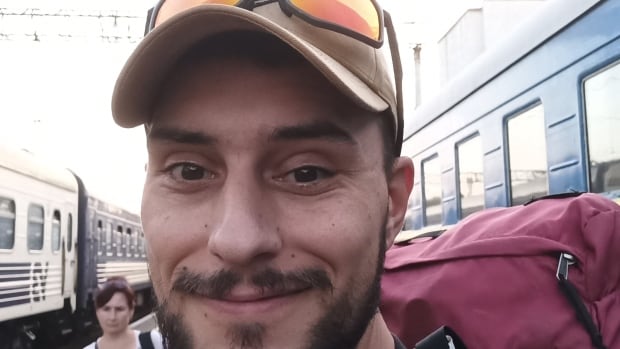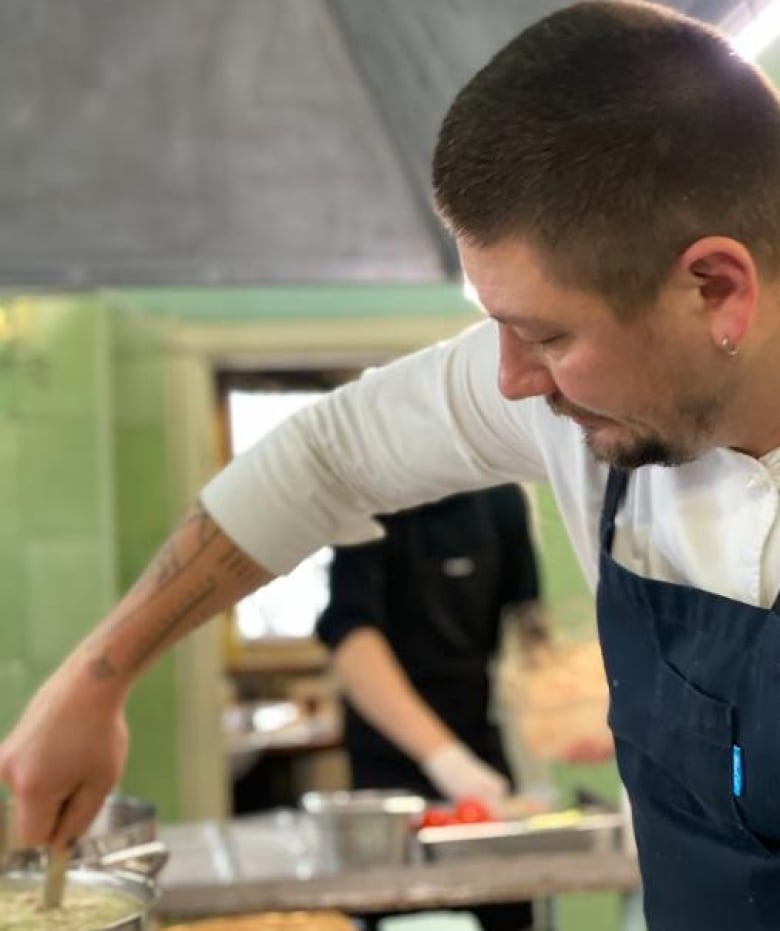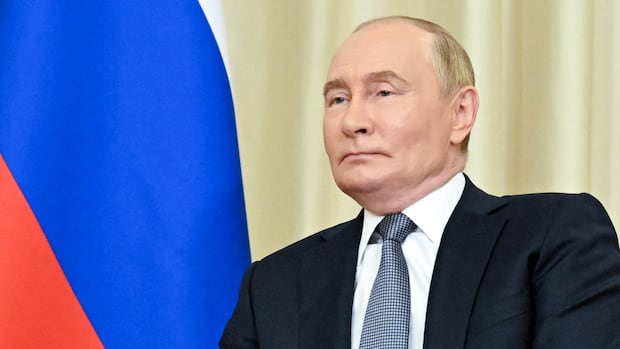
When Joshua Cabral got to Ukraine, he was advised to download the air-raid app — for obvious reasons.
He was out for a walk the first time the app sounded the alarm
“I remember feeling this spike of fear,” Cabral, a 39-year-old chef from Ontario, said in an interview. “Oh my God, this is happening, this is a reality now.”
The reaction of the Ukrainians on the street around him was telling.
“They’re not doing anything, they are just carrying on with their business,” said Cabral, recalling the juxtaposition between a screaming alarm and the lack of panic on the street.
“It was the most surreal experience of my life.”
As Cabral explains, Russian’s ongoing invasion of Ukraine put him on a path to support the defending nation, in the form of helping to provide nourishing meals for the soldiers serving on the front lines of the war.
A call to serve
Since March, Cabral has been volunteering with the Magic Food Army — a Ukrainian charitable organization dedicated to preparing hearty and nutritious meals for the soldiers on the front line.
Cabral, who grew up in Elmvale, Ont., had worked in kitchens back home in Canada for years, but the call to Ukraine came from a personal connection — including having a Ukrainian grandmother.

When Russia began its aggression against Ukraine a decade ago in Crimea and in Eastern Ukraine, Cabral said he got a call from his grandmother asking if he was aware of what was going on. “That’s your family over there,” she said.
That conversation “planted a seed,” he said, which grew into something bigger when Russia launched its invasion of Ukraine in February 2022.
He left a job at a fine dining establishment in Toronto’s Yorkville neighbourhood to help Ukraine.
Ukrainian push into Russia is ‘catastrophic’ for Putin’s plans, former U.S. ambassador says
“To an extent, it was like a call home,” said Cabral. “It was an opportunity to find out about a part of my history that I had been cut off from, and the realization that if Russia was successful, I would be forever cut off from it.”
Initially, Cabral spent several months volunteering with the World Central Kitchen, in Ukraine and Poland.
He returned to Canada and found a job. But being back home didn’t sit right with him.
“There is something that had given me a purpose that I could no longer tap into,” said Cabral, who ended up learning about the Magic Food Army and reaching out.
Serving the soldiers
Ukrainian chef and restaurateur Ievgen “Zhenya” Mykhailenko founded the Magic Food Army with his wife Mary.
At this point in the conflict, Mykhailenko says his organization is preparing tens of thousands of meals per month and taking them to soldiers in front-line areas — including in the Zaporizhzhia, Kherson and Donbas regions.

There have been some scary moments along the way.
“Over the past two and a half years, I have seen way too much shit,” said Mykhailenko, who said that artillery shells could be heard in the distance during a recent delivery trip to Ukraine’s embattled Pokrovsk region.
“The sounds of war, they haunt you,” he said.
He says the Magic Food Army is aiming to extend its operations, with ever-more soldiers entering the fight.
“There’s a lot of fresh blood coming [to serve],” said Mykhailenko, who will be launching a crowdfunding effort in the coming days to raise money for the needed equipment.
Ukraine has taken steps to boost the number of soldiers it can raise for the continuing fight with Russia. It reported an uptick in recruitment levels earlier this summer.
‘Taste of the home life’
Cabral is among dozens of volunteers working in the Magic Food Army’s kitchens.
The food, he said, is a cut above the standard meals that men serving in the military would otherwise depend on.
“Your standard packaged military meal… is basically low-grade fuel. It’s high-calorie, high fat, but very little nutrients overall,” he said.
The Magic Food Army aims “to turn that around,” said Cabral, by serving up “a bit of a taste of the home life” for people who may not have been home for a very long time.
“It often contain dishes that a Ukrainian soldier would be familiar with from their home,” said Cabral, listing yushka soup and offal soup as two such examples.
Other offerings include crepes, sandwiches and even cakes — the latter of which came at the request of soldiers.
“That was one of the pieces of feedback we got from the troops, ” said Cabral. “‘Hey man, we really love the meals, but sometimes having a dessert with that is just the piece that we really need.'”
Yet providing Ukraine’s soldiers with adequate food is just one critical ingredient in Kyiv’s war with Russia.
George Barros, the Russia team leader at the Institute for the Study of War says “military logistics are the backbone of any effective forces,” and that includes ensuring troops have enough food, water, weapons and other supplies.
Because if soldiers get hungry, sick, or end up insufficiently equipped, that impacts their ability to fight, he said.
‘The Canadian volunteer’
Cabral said a recent trip to a front-line area in the Donbas region the meet serving soldiers, in person, was humbling.
“I was meeting guys who were literally walking up to me, like caked in mud, they had that dirt on their hands, and they just wheeled up and spent five minutes talking to me,” said Cabral, who said these men lit up upon learning he was “the Canadian volunteer who has been cooking your meals.”
He also recognized that some of the people he met may not be there the next time.
The perils of life in wartime Ukraine have left some members of Cabral’s family wanting to see him head home to Canada.
But his commitment to Ukraine is unwavering.
“This is not just a fight for territory and land, this is a fight for a future of an entire nation,” said Cabral.
